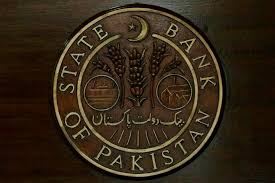Islamabad, Oct 20: State-Owned Enterprise Reforms Fall Short of Expectations, Says SBP. Existing and privatized state-owned businesses (SOEs) continue to experience pinching problems, a sign that the reforms have not produced the expected results.
A 40-page research titled “Reforming State-owned Enterprises in Pakistan” was also included by the State Bank of Pakistan (SBP) in its Annual Report 2023–24. The study listed a number of reasons why SOE reforms had failed, chief among them being a lack of political will.
According to the report, for example, the privatization of Karachi Electric Supply Corporation (now K-Electric) shown increases in profitability and service quality. However, due to a number of unsolved sectoral policy and governance challenges, its consumers continue to experience high electricity costs and frequent power disruptions, the report continued.
Similar to this, the government was able to increase non-tax revenues through the capital market transactions of Sui Southern Gas Company (SSGC) and Sui Northern Gas Pipelines Ltd (SNGPL), in the expectation that a stock market listing would allow for stricter corporate governance and more robust checks and balances.
The research noted that, in contrast to the banking and telecom industries, where SOE privatization was accompanied by a number of governance and policy changes, “the unresolved sectoral and business policy issues continue to be a burden on these SOEs’ operations and finances.”
An analysis of privatization deals by sector shows that, even for tiny, simpler companies like Roti factories, the process has taken a lengthy time, ranging from six to sixteen years. Furthermore, after 2001, the capital market was used to carry out large-scale transactions, mostly pertaining to the banking, telecom, and energy industries.
“In addition, the privatization process was characterized by a number of institutional and legal flaws, and certain privatization agreements also encountered procedural and transparency problems, which caused public trust in the process to decline,” the report stated.
Some attempts at SOE reforms focused on reviving particular SOEs by enhancing their business operations. According to the report, the business operations, profitability, assets, and service delivery of state-owned enterprises (SOEs), including PIA and Pakistan Railways, deteriorated due to a lack of effective corporate governance and other supporting reforms, even when such initiatives were carried out with full political support.
“Bailout packages were consequently offered, and a vicious cycle developed.” Seventy-three percent of the 121 federally-owned SOEs by the end of FY23 were commercial, with the remaining non-commercial for a variety of sectoral development needs.
Finance, oil and gas, power, infrastructure, transportation, information technology and communication (ITC), manufacturing, and trading and marketing are the primary sectors into which the government commercial SOEs fall.
“These organizations provide jobs and contribute to government revenue, but they also frequently need government support, which has an impact on budgetary sustainability. According to the analysis, these SOEs consistently reported losses on a net basis from FY16 to FY23.









